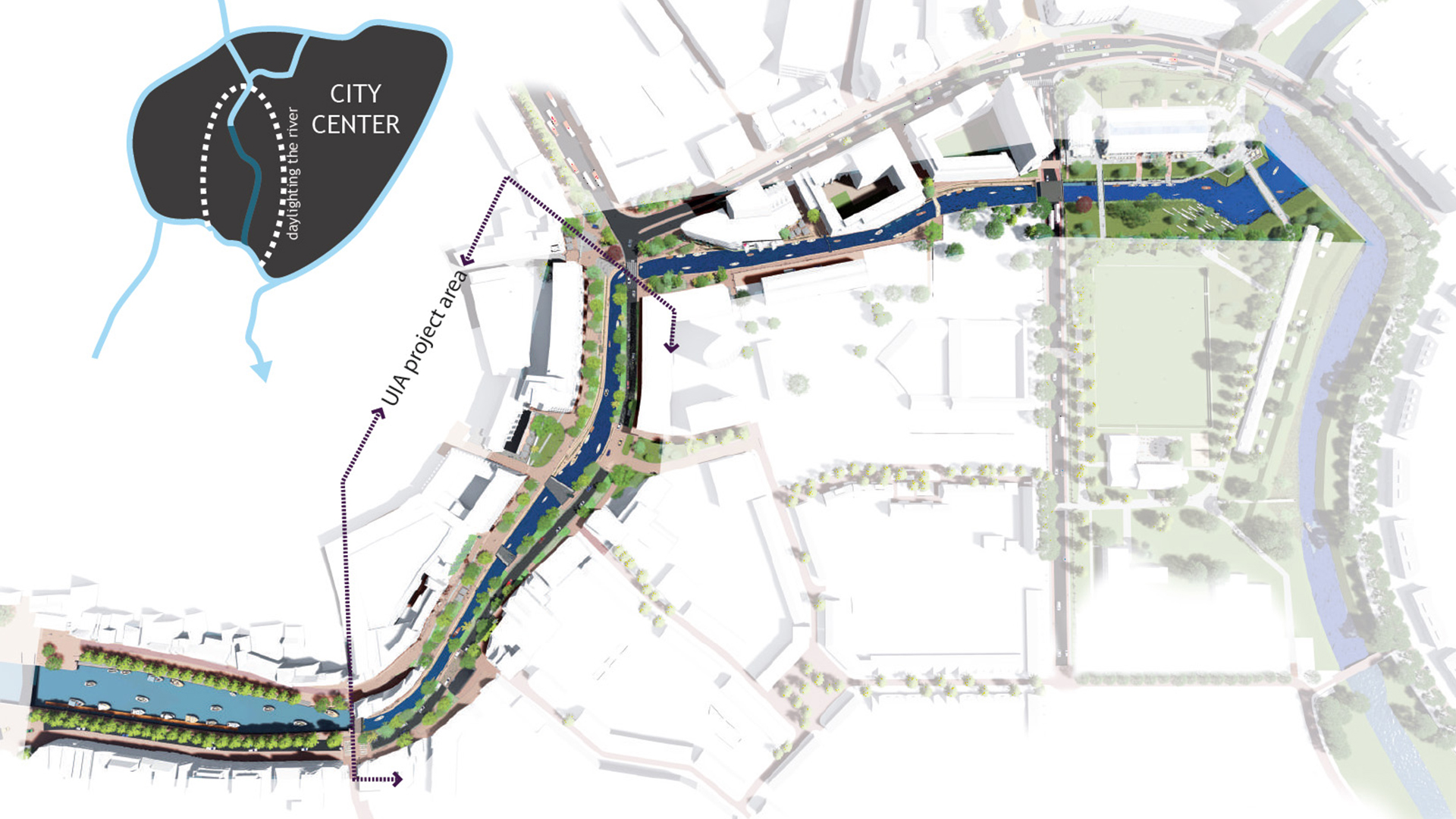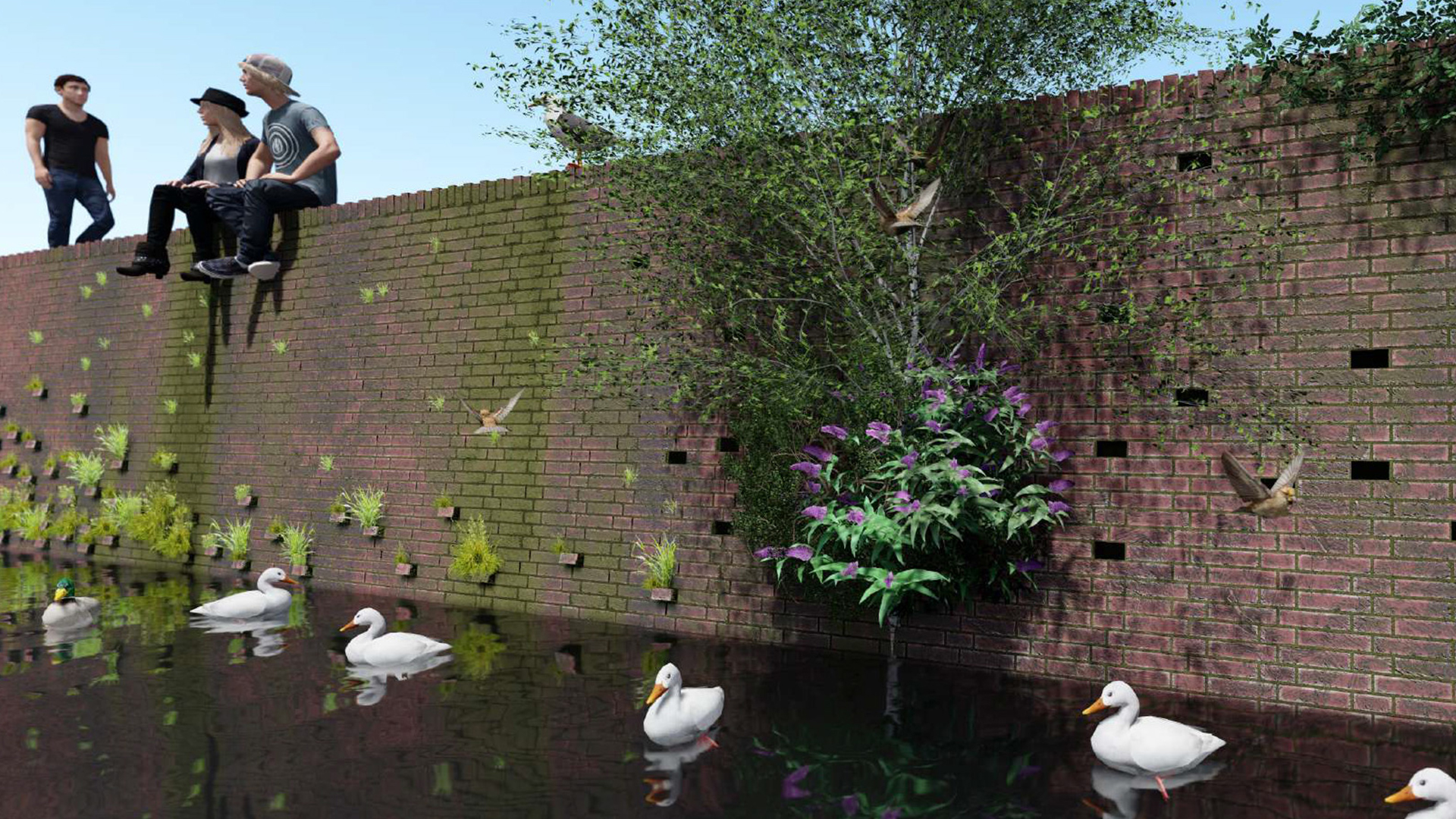Regenerating urban rivers with green quays
Urban rivers are important elements for urban ecosystems and for the migiation of the effects of climate change. Regenerating urban rivers proves a challenge, especially in dense downtown areas where there is insufficient space to develop natural riverbanks. Research project GreenQuays proposes a set of innovative vertical ecosystems to renature such quays.
Many cities in Europe struggle with unsustainable urbanisation, degredation of urban ecosystems, and lack of resilience to climate change. The city of Breda is one of the cities facing such challenges. The urban restoration of the river Mark aims to address these challenges. GreenQuays integrates nature inclusive regenerative solutions to create sustainable urban renaturation. The new green quays are linked to the public green spaces along the river.
The solution is centered on an innovative Nature Inclusive Quay (NIQ) technology. This technology is specifically designed to support the development of a complex vertical ecosystem, providing favourable conditions for flora and fauna. GreenQuays also builds on systemic innovation, integrating climate-responsive, spatially regenerative, restorative, biophilic and economically empowering approaches. This technical solution is supported by social innovation. The application of an intensive participatory co-design process targets the active engagement of external stakeholders and citizens.


The research team from the faculty of Architecture and the Built Environment developed, amongst others, various mortars to allow for both optimal plant growth and the safeguarding of the structural integrity of the quays. Starting 20 April, the resulting prototypes are installed along the quays of the river Mark. Each prototype proposes a different technique, offering the reseach team the opportunity to optimise the ecosystem for both flora and fauna.
More information
Contact researcher Koen Mulder for more information on the project.
